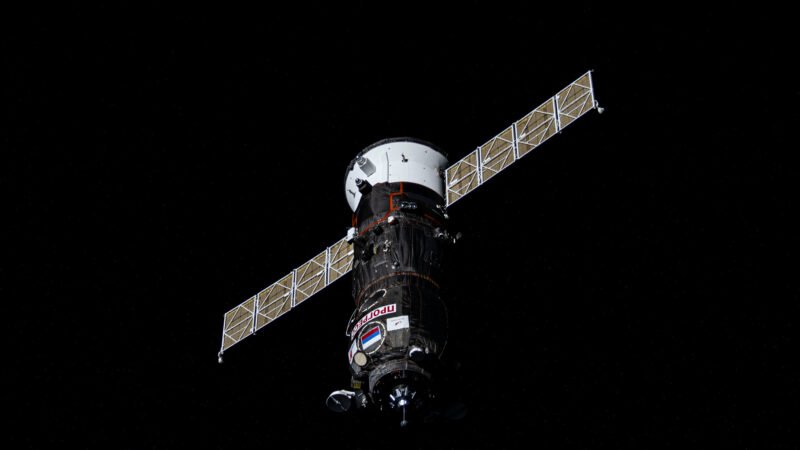Top Highlights
-
Launch Coverage: NASA will livestream the launch and docking of the Roscosmos Progress 92 spacecraft, set for July 3 at 3:32 p.m. EDT, delivering three tons of supplies to the ISS.
-
Autonomous Docking: The Progress 92 spacecraft is scheduled to dock autonomously on July 5 at 5:27 p.m. EDT, following a two-day journey to the ISS.
-
Mission Duration: The spacecraft will remain attached to the ISS for six months before re-entering Earth’s atmosphere to dispose of crew-generated trash.
- Long-term Goals: The International Space Station serves as a platform for research and development essential for future missions to the Moon and Mars, with NASA supporting a continuous human presence for nearly 25 years.
NASA to Provide Coverage of Progress 92 Launch, Space Station Docking
NASA will broadcast the launch and docking of the Roscosmos Progress 92 cargo spacecraft live. This mission will deliver about three tons of food, fuel, and supplies to the crew aboard the International Space Station.
The uncrewed Progress 92 spacecraft is set to launch at 3:32 p.m. EDT on Thursday, July 3. It will lift off on a Soyuz rocket from the Baikonur Cosmodrome in Kazakhstan. Live coverage will begin at 3:10 p.m. on NASA+. Viewers can access the broadcast through various platforms, including social media.
After a two-day journey to the station, Progress 92 will dock autonomously at 5:27 p.m. on Saturday, July 5. Coverage of this critical rendezvous will start at 4:45 p.m. on NASA+.
Once docked, the Progress 92 spacecraft will stay connected to the space station for about six months. During this time, it will help the crew manage vital supplies. Eventually, the spacecraft will return to Earth, carrying trash disposed of by the astronauts.
Before Progress 92 arrives, the existing Progress 90 spacecraft will undock from the Poisk module on Tuesday, July 1. However, NASA will not stream this undocking.
The International Space Station serves as a hub for scientific research and technological advancement. For nearly 25 years, NASA has ensured a continuous human presence in this unique environment. Astronauts onboard explore how to live and work in space for extended periods. Moreover, the ISS acts as a springboard for future endeavors, including missions to the Moon under the Artemis program and, ultimately, the exploration of Mars.
Discover more about the International Space Station and its ongoing research at: https://www.nasa.gov/station.
Expand Your Tech Knowledge
Explore the future of technology with our detailed insights on Artificial Intelligence.
Discover archived knowledge and digital history on the Internet Archive.
SciV1

